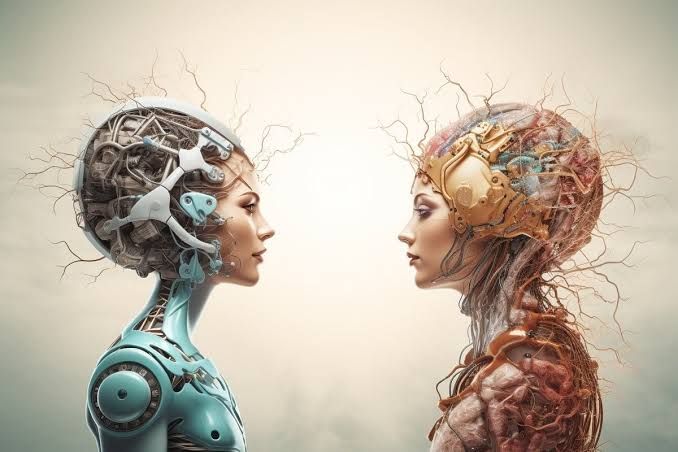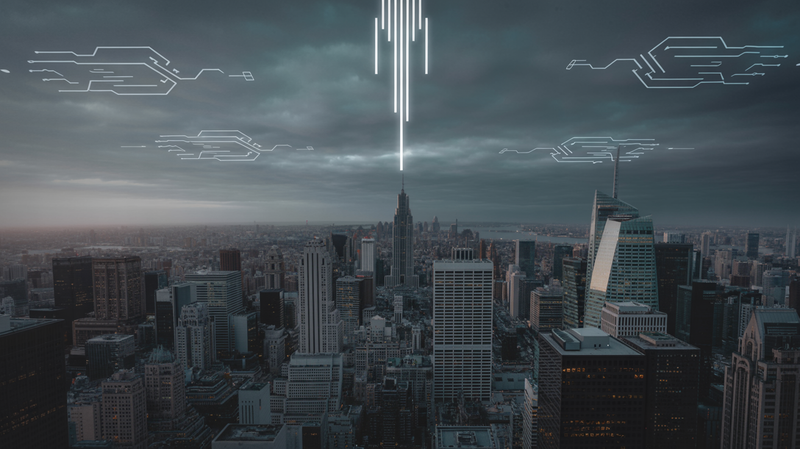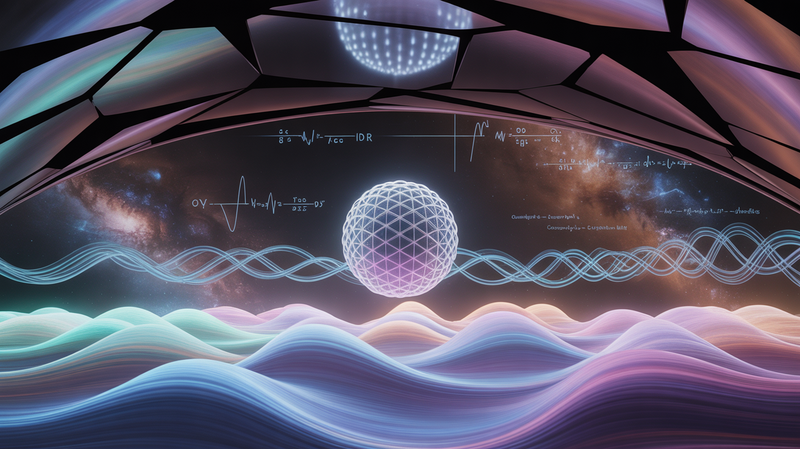Artificial Intelligence and Identity: The Reimagining of Self in the Era of Intelligent Machines
Exploring Identity in the Age of AI As the curtain rises on the era of Artificial Intelligence (AI), we find ourselves in an exciting yet challenging epoch, one that is reshaping our lives in myriad ways. From how we work, communicate, learn, and entertain ourselves, to how we understand the

Exploring Identity in the Age of AI
As the curtain rises on the era of Artificial Intelligence (AI), we find ourselves in an exciting yet challenging epoch, one that is reshaping our lives in myriad ways. From how we work, communicate, learn, and entertain ourselves, to how we understand the world and ourselves, AI is leaving its indelible footprints on the sands of our existence.
Perhaps, the most profound and personal of these changes is how AI influences our identities. For long, identity has been a complex and nuanced construct, forged through our interactions with others, shaped by our roles, and tied intrinsically to our sense of self-worth. But as we step into a future increasingly intertwined with AI, what happens to this delicate construct? How does AI impact our self-perception, the roles we inhabit, and the value we ascribe to ourselves? Moreover, in an era where AI systems can mimic human thought and speech, where do we draw the line between us and them, between human and machine?
These are not merely philosophical ponderings but tangible realities we must grapple with as we navigate the landscape of the 21st century. The era of AI calls for a reimagining of identity, a redefinition of who we are in the light of intelligent machines. It demands that we explore new facets of our identities and reassess how we perceive, evaluate, and express ourselves.
In this article, we embark on an intriguing journey, charting the intersections of AI and identity. We delve into how AI is reshaping our self-perception, transforming our roles, and redefining our sense of self-worth. We probe the implications of these changes and contemplate how we might navigate our identities in the age of AI. In doing so, we seek to understand not just the influence of AI on our identities but also how we can harness AI to enhance our self-understanding and express our individuality.
So, let's begin this exploration. Let's delve into the intriguing world of AI and identity, and ponder the question: Who are we in the age of intelligent machines?
AI and Self-Perception
Our identity is an amalgamation of various aspects of our lives - our experiences, relationships, beliefs, desires, and the interactions we engage in. In the age of technological advancement, a novel variable has entered this identity equation - Artificial Intelligence. As AI continues to permeate every aspect of our existence, its influence on our self-perception becomes a topic of intense interest.
An average person today interacts more with AI than they might realize. It's in the social media algorithms curating our feeds, voice assistants managing our daily schedules, and the GPS navigations guiding our journeys. These AI systems exhibit personalities tailored to be relatable, encouraging a more personal connection. But how does this pervasive and intimate interaction with AI influence our self-perception?
AI has a unique, often subconscious impact on our identity. For instance, our interactions with AI recommendation systems like those on Netflix or Spotify significantly influence our tastes. Over time, we begin to internalize these recommendations. Do we like a particular genre of music because we genuinely do, or has an algorithm subtly nudged us toward it?
These digital assistants, be it Alexa, Siri, or Google Assistant, also paint an idealized reflection of ourselves. They exhibit unfaltering patience, exist to serve our needs, and hold no judgments or biases. They create a bubble where we are at the center, subtly reinforcing a perception of self-importance. How does this constant interaction with entities designed to serve us mold our self-view?
Moreover, these AI systems track our habits, preferences, and behaviors, creating a digital reflection of ourselves that can sometimes know us better than we do. What does it mean for our self-perception when an AI can predict our actions before we can?
However, it's not just about the changes in how we perceive ourselves. The AI era brings about a change in the dynamics of our social interactions. When the 'other' in a conversation is an AI, it alters the rules of the interaction, challenging traditional forms of social etiquette. If the AI we interact with is always polite and never interrupts, does that set new standards for how we perceive socially acceptable behavior?
In essence, AI, by virtue of its design and pervasiveness, has a profound effect on our self-perception. It shapes our tastes, influences our behavior, alters our social interactions, and challenges our understanding of self. As AI technology evolves, so too will its impact on our identities. This interplay between AI and self-perception is complex, fascinating, and warrants further exploration. In the next section, we will delve into how AI affects our roles and places in society.
AI and Human Roles
The rise of AI presents an existential question: What does it mean to be human in a world of intelligent machines? As AI continues to advance, its impact extends beyond altering our self-perception to fundamentally reshaping our roles in society.
In various sectors, we're already seeing AI take on tasks traditionally performed by humans. From autonomous vehicles that could replace drivers to AI algorithms capable of diagnosing medical conditions, these technological advancements have ignited a discussion on the changing nature of work. In many ways, the roles we once identified with are shifting, leading to a profound recalibration of our place in society.
For some, the advent of AI in the workplace is a source of anxiety, fearing job displacement due to automation. Yet for others, it presents an opportunity for augmentation rather than replacement. AI can take on repetitive tasks, freeing up time for humans to engage in more creative, strategic, and emotionally engaging work. By removing the mundane, AI could help redefine human roles in a more fulfilling direction.
However, the transition isn't seamless. The realignment of roles necessitates reskilling and upskilling, asking the workforce to adapt to the demands of the AI era. It challenges our traditional notions of career trajectories and professional identities, encouraging a shift towards continuous learning and adaptability.
Beyond the workplace, AI is reshaping our roles in our personal lives too. In homes, AI-powered devices take on the roles of personal assistants, tutors, and even companions. How does this delegation of personal tasks to AI impact our sense of purpose and our relationships with those around us?
Moreover, as AI systems become more advanced, they're beginning to engage in activities that we've always considered uniquely human. We see AI creating art, writing poetry, and composing music. By encroaching on areas of creativity and emotional expression, AI compels us to reevaluate what distinguishes us as humans.
However, while the impact of AI is significant, it doesn't diminish the importance of the human touch. Empathy, compassion, and complex emotional understanding are aspects of the human experience that AI has yet to fully replicate. Thus, in the age of AI, our roles may not be lessened but rather refocused. We're encouraged to lean into our inherently human capacities - those areas where we hold a comparative advantage over machines.
In navigating this AI-infused landscape, our roles are not being eradicated but evolved. We're not becoming redundant but rather, more distinctly human. The impact of AI on human roles is profound, necessitating a thoughtful reflection on our evolving identities in the age of intelligent machines. As we move to the next section, we will explore how AI impacts our self-worth and societal value.
AI and Self-Worth
The discussion of AI's impact on our identities is incomplete without addressing its influence on our sense of self-worth. In a society where our value is often tied to our productivity and roles, how does AI, with its capacity for high efficiency and accuracy, affect our feelings of worthiness?
Traditionally, many people have found a sense of self-worth in their roles, be they professional, familial, or social. However, as AI takes over more tasks and potentially outperforms humans in certain areas, it can be easy to feel threatened or undermined. The perception that AI is superior in efficiency and effectiveness can lead to feelings of inadequacy or obsolescence.
One example of this can be seen in professional settings. As AI systems are increasingly used to automate tasks, individuals may begin to question their worth within their organization. If a machine can do their job faster and with fewer errors, what value do they provide? This line of thinking can lead to self-doubt and a reduced sense of worth.
This phenomenon is not limited to the workplace. AI advancements in the creative sphere – such as AI-authored books or AI-composed music – may lead artists to question their unique value. If an AI can create compelling art, where does that leave the human artist?
While these concerns are understandable, it's important to note that they stem from a narrow definition of self-worth – one that equates human value solely with productivity or unique abilities. However, our worth extends far beyond our economic output or the exclusivity of our skills.
AI's capacity to replicate or even surpass human performance in specific tasks does not diminish human value. On the contrary, it highlights the areas where humans excel – those that are irreplicable by machines. These include complex critical thinking, emotional understanding, creativity, and empathy. In a world where AI carries out routine tasks, humans can focus on higher-order activities that offer a deeper sense of fulfillment and purpose.
Moreover, the notion that a machine could undermine our self-worth is based on a comparison that misses the mark. Humans and AI are fundamentally different entities with different capacities and roles. While AI is a tool designed to assist us, humans have the capacity for personal growth, emotional connection, and conscious experience.
So, in the age of AI, we must broaden our understanding of self-worth. It's not just about what we can do that AI can't. It's about recognizing our inherent value as sentient beings capable of empathy, growth, and complex understanding. As we continue to coexist and collaborate with AI, nurturing this healthier perspective of self-worth will be crucial in maintaining our mental well-being and sense of identity.
In the next section, we will explore how our interaction with AI shapes our societal value and the perception of it.
AI and the Reimagining of Identity
As we've seen in the previous sections, our interactions with AI have profound implications for our self-perception, roles, and self-worth. These changes compel us to reconsider our identities in the context of a world increasingly intertwined with AI.
Our identities are not static; they are dynamic and evolve with our experiences, knowledge, and the societal and technological contexts we find ourselves in. In the digital age, our online presence and digital interactions have already influenced our identity formation. With the advancement of AI, this process is entering a new phase, necessitating a reimagining of our identities.
AI challenges our traditional concept of identity, particularly our emphasis on unique human qualities and capabilities as defining characteristics. As AI starts to replicate or even outperform humans in certain domains, the line between human and machine abilities blurs, pushing us to redefine what it means to be human.
We may need to move beyond viewing our identity in terms of our roles or capabilities. Instead, we should focus more on the qualities that are intrinsically human and beyond AI's reach. Our ability to connect on an emotional level, to empathize with others, to have personal experiences and subjective consciousness – these are facets of our identity that AI cannot replicate.
Reimagining our identity in the era of AI also involves acknowledging and embracing our relationship with AI. AI is no longer an external, separate entity, but an integrated part of our lives and, by extension, our identities. It influences how we perceive ourselves and how others perceive us. It changes the way we work, learn, and communicate. As a result, our digital and AI-assisted selves become integral to our identities.
In this sense, our identities expand to include our interactions with and through AI. We are not just individuals but networked selves, existing in symbiosis with the digital and AI tools we use.
However, this expanded identity doesn't diminish our individuality. Instead, it adds another layer to our multifaceted identities. Our interaction with AI is just one aspect of who we are, complementing rather than replacing the other aspects of our identity.
This reimagined identity opens up new opportunities for self-expression and growth. With AI as a tool, we can explore new ways of thinking, learning, and connecting with others. We can augment our capabilities, broaden our perspectives, and navigate the world in ways that were previously unimaginable.
In the end, AI's role in our lives and its impact on our identities is something we can shape. As we continue to explore this new frontier, we can choose to see AI not as a threat to our identities but as an opportunity for reimagining and expanding them. We have the power to define who we are in the age of intelligent machines.
In the next section, we will conclude by considering how we can navigate this evolving identity landscape and use AI as a tool for enhancing our self-understanding and self-expression.
Navigating Identity in the Age of AI
The profound impact of AI on our self-perception, roles, and self-worth necessitates a profound reimagining of our identities. As we've seen, this is not a journey we should fear but an opportunity we should embrace. But how do we navigate this evolving identity landscape? How do we use AI as a tool for enhancing our self-understanding and self-expression?
- Awareness and Understanding: The first step is awareness. We need to recognize the pervasive presence of AI in our lives and understand how it influences our identities. This involves not just learning about AI but also reflecting on our interactions with AI. How does AI shape our self-perception, roles, and self-worth? How does it influence how we see ourselves and others?
- Agency and Choice: We have agency in shaping our identities, even in the age of AI. Yes, AI influences us, but we have the power to decide how it does so. This agency involves making choices. We can choose how much we rely on AI, in which areas, and to what extent. We can decide what aspects of our identity we want AI to augment and which ones we want to preserve from its influence.
- Adaptability and Growth: As our identities evolve in the AI era, so too should our capacity for adaptability. We should be open to change and growth, to learning new skills, adopting new roles, and embracing new ways of thinking. This is not about losing our old selves but about expanding and enhancing our identities.
- Authenticity and Humanity: In our interaction with AI, we should not lose sight of our authenticity and humanity. AI can augment our capabilities, but it cannot replicate our human qualities. As we redefine our identities, we should affirm the qualities that make us uniquely human.
- Allyship with AI: Finally, we should see AI as an ally in our journey of self-discovery and growth. AI can serve as a mirror, reflecting our strengths, weaknesses, biases, and potential. It can challenge us, push us to grow, and help us understand ourselves better.
Navigating our identities in the age of AI is indeed a complex journey, filled with challenges and opportunities. But it's also an exciting journey, opening up new frontiers of self-understanding and self-expression. As we chart this path, let's remember that we are not passive recipients of AI's influence. We are active shapers of our identities, capable of using AI to enhance our self-understanding, express our individuality, and realize our full potential in the age of intelligent machines.




